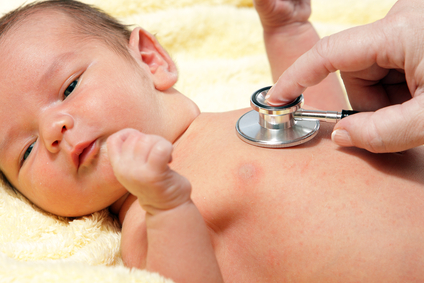Mothers’ diets may influence childhood cancer rates: Dutch researchers
 Childhood cancer, in particular leukaemia among boys, does appear to be related to their mothers’ consumption of carcinogenic food during pregnancy, researchers at Maastricht University say.
Childhood cancer, in particular leukaemia among boys, does appear to be related to their mothers’ consumption of carcinogenic food during pregnancy, researchers at Maastricht University say.
The findings, published in the British Medical Journal, are based on a European study using biomarkers to assess how what mothers eat affects the health of their babies.
Cancer in childhood is rare and there are around 175,000 new cancer cases a year among children aged 0-14 years, the researchers say.
However, in Europe, since the 1950s the incidence of cancer in this age group has increased by about 1% a year. Leukaemia, brain tumours and lymphomas account for most of the cases.
The research team, led by professor Jos Kleinjans, found that the placenta does not protect the fetus against exposure to dietary carcinogens.
‘Overall, fetal exposure to selected dietary carcinogens seems to induce molecular events that indicate increased cancer risks,’ the research report states.
Genetic link
In addition, the research suggests there may be a genetic link to the risk of childhood cancer associated with fetal exposure to carcinogens in food.
Although they say further research is necessary the research team suggests that pregnant women can limit their consumption of carcinogens by avoiding foods such as processed meats and fried and grilled food.
Food manufacturers could also reduce their use of carcinogenic substances, such as nitrite for curing meat products.
Thank you for donating to DutchNews.nl.
We could not provide the Dutch News service, and keep it free of charge, without the generous support of our readers. Your donations allow us to report on issues you tell us matter, and provide you with a summary of the most important Dutch news each day.
Make a donation